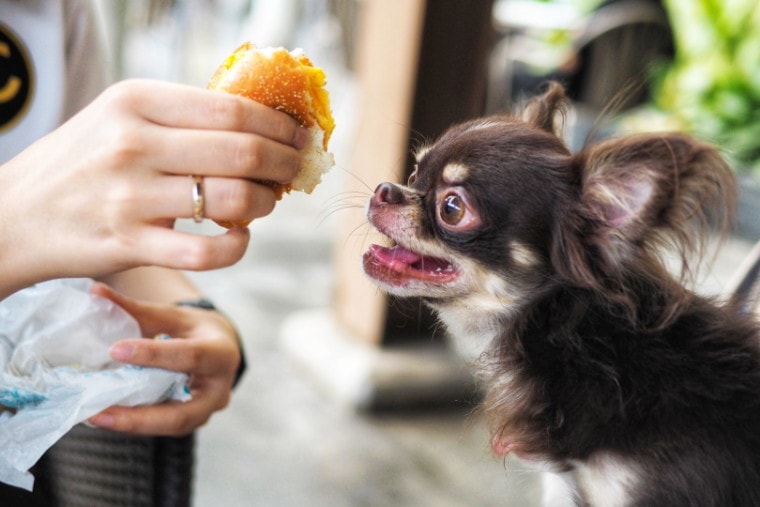
We love our dogs, and they make great companions that enjoy being with us and taking part in family activities, which usually include joining us at the dinner table. Most of us are familiar with our pets begging for scraps, but you might not know what foods are safe to give your dog if you are a new pet owner and would like to make sure your pet stays healthy.
Click below to jump ahead:
The 17 Common Human Foods Safe for Dogs
1. Bread

Your dog can technically eat bread as long as it doesn’t contain nuts or raisins, but it doesn’t provide much nutrition and can help lead to obesity. If your dog got on the table and stole a piece of bread, it would be fine, but you should avoid making it part of its diet.
2. Cashews

Cashews are a safe nut that your pet can eat, and many of our dogs enjoy them. Cashews have antioxidants that can help your pet fight disease and protein for energy and strong muscles. However, like many nuts, cashews are high in fat, which can lead to weight gain and other health issues, so they are only suitable as a treat.
3. Cheese
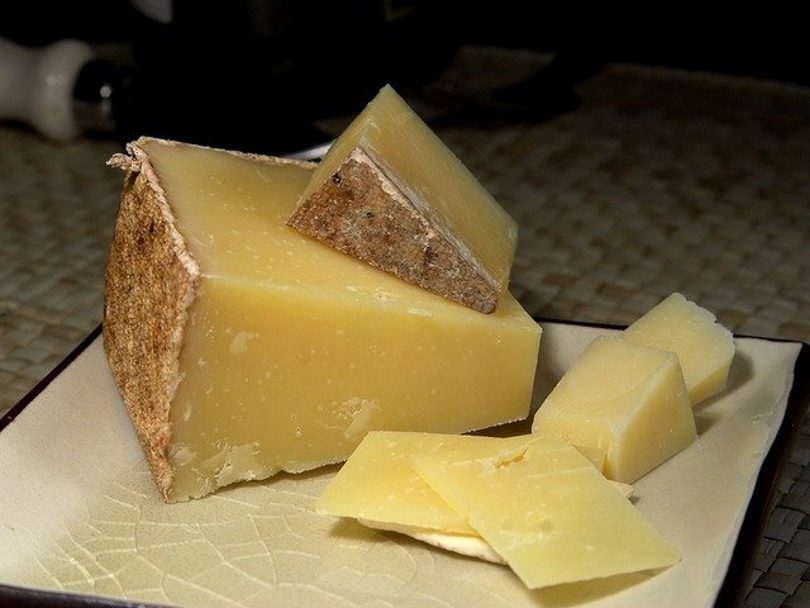
Many of us have cheese in the home and might be surprised to find that it makes a great treat for your dog. You can purchase sliced cheese, so it is easy to portion, and it contains plenty of protein and calcium. The downside to cheese is that many varieties are high in fat, so we recommend choosing a low-fat brand, and many dogs are lactose intolerant, so you will need to introduce it slowly to make sure your pet doesn’t have any problems.
4. Coconut

Coconut can be a healthy snack for your pet, and its ingredients can help fight bacteria and viruses. It can also help fight bad breath and will help clear up some skin conditions.
5. Corn

Corn is perfectly safe for your dog to eat, and it’s a common ingredient in many dog foods. Your dog can eat it without worry as long as there is no salt or butter on it. However, we recommend avoiding corn when possible because it doesn’t provide much nutrition and is mostly empty calories that will leave your pet hungry sooner than better food. Corn is also most of the most genetically modified foods on Earth.
See Also: Can Dogs Eat Hominy?
6. Eggs
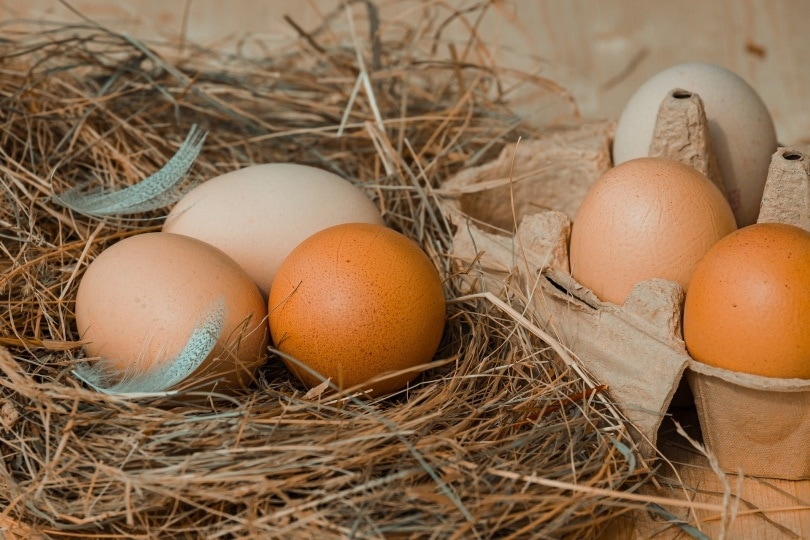
Eggs are a fantastic food for dogs to eat, and it’s another ingredient you can find in commercial dog foods. As long as it’s fully cooked, it’s high in protein and can help settle an upset stomach. However, you must fully cook the eggs to eliminate the risk of salmonella and other health risks.
7. Fish

Fish are another great food for your dog. Fish is high in protein and omega fats which help reduce swelling and promote a soft, shiny coat. The only downside about feeding fish to your pet is that it can contain bones that could lodge in your pet’s throat, so you will need to be careful about what type of fish you serve.
8. Ham

Ham is a common food in many households, and it’s safe for your pet to eat in small amounts. However, ham is high in salt and fat, so it can lead to health concerns if you provide it too frequently.
9. Honey

Honey is high in sugar, but it also has plenty of vitamins and minerals important to your dog’s health. It introduces a small amount of pollen into your pet’s system, which can help reduce allergies to pollen, and you can use it as a topical medication to provide relief from burns and cuts.
10. Milk

Your dog can drink milk in small amounts, and it has plenty of calcium, but remember that many dogs are lactose intolerant, so it’s better to start slow with small portions that you can increase over time. We recommend choosing low-fat milk to reduce the risk of weight gain.
11. Peanut Butter

Most brands of peanut butter are safe for your dog to eat. It’s a popular treat because dogs love it, and it’s easy to work with, so you can hide medication in it or fill one of your dog’s chew toys with it.
12. Popcorn

Popcorn is a popular treat for movie night, and you will be happy to know it’s safe to share with your dog. However, you will need to make sure there is no salt or butter on the portion you give your pet.
13. Pork
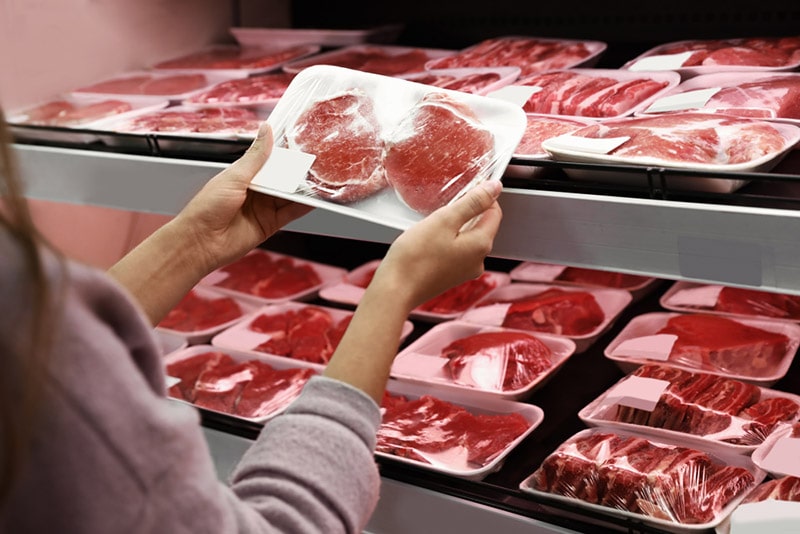
Pork is safe meat that your dog can eat. It has plenty of easy-to-digest protein along with important amino acids. It’s also less likely to cause an allergic reaction in your pet than other meats. However, some types of pork can be quite salty and high in fat.
14. Salmon

Salmon is a great source of protein and omega fatty acids, both of which will help your pet stay healthy and happy by providing energy and reducing inflammation. However, you will need to fully cook the salmon to avoid potentially dangerous parasites that can upset your dog’s digestive system, leading to diarrhea, vomiting, and dehydration.
15. Tuna
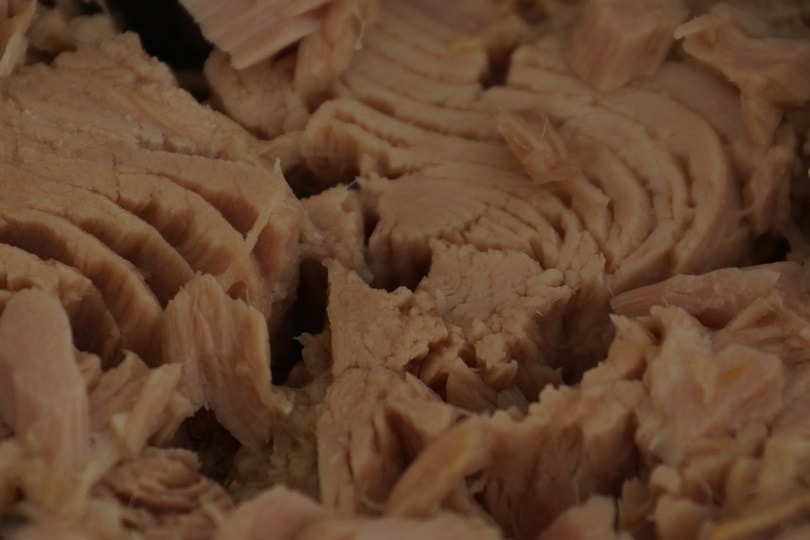
Tuna is another great source of protein and omega fats. However, it can also contain high levels of mercury and salt, which can cause health problems if your pet eats it too frequently.
16. Turkey

Turkey is good for your dog, and you can find it as an ingredient in many dog foods. It’s high in protein but can also contain plenty of fat, so you’ll want to choose something lean or cut the fat off before giving it to your pet.
17. Yogurt

Yogurt is a healthy food that you can provide your dog to help it get more probiotics. However, as with other dairy products on this list, there is a risk that your dog will be lactose intolerant and feeding them this food will result in your pet having diarrhea.
The 6 Common Human Foods to Avoid
1. Almonds

Almonds present a choking hazard for your dog, so we recommend leaving them out of your pet’s diet. They also provide your pet with calcium and magnesium.
2. Chocolate

Chocolate is a food you should avoid giving your pet at all costs. Even a small amount of dark chocolate can have serious side effects due to its effect on your dog’s metabolism. Diarrhea and vomiting are common, but your pet can also experience seizures, irregular heartbeat, and even death. If your dog ate some chocolate when you weren’t looking, you would need to call the vet or poison helpline immediately to ask for recommendations.
3. Cinnamon

Cinnamon is not toxic to your dog like chocolate is but eating too much of it can irritate your pet’s mouth and can also reduce blood sugar, leading to diarrhea and a slowed heartbeat.
4. Garlic

Unfortunately, your pet cannot eat garlic or any of its relatives, including the onion, leeks, and chives. These foods can cause anemia in your pet and could elevate the heart rate with larger doses causing your pet to collapse. Matters are complicated because the effect of eating this food might not occur right away, and it can take several days for problems to occur so you need to watch your pet closely if you think it might have ingested garlic.
5. Ice Cream

While ice cream might be a favorite human snack, it’s best to avoid giving it to your pet even if they like it. Ice cream is high in fat, sugar, and lactose, all of which can cause problems for your pet. A regular diet of ice cream will likely result in diarrhea and weight gain.
6. Macadamia Nuts
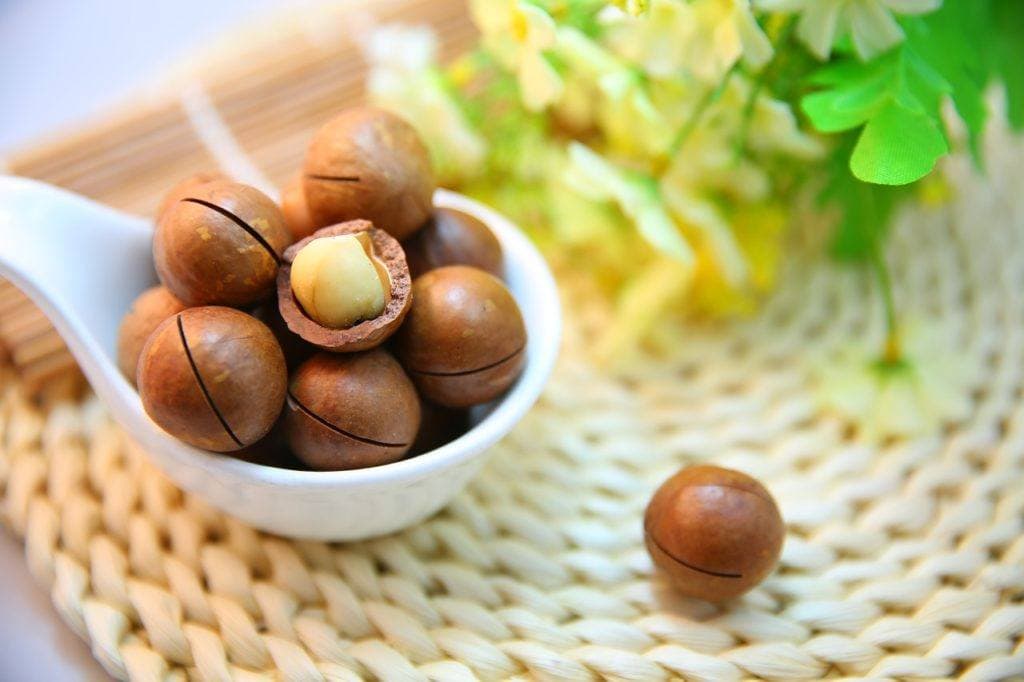
Macadamia nuts are poisonous to your pet, and you should never feed them to your dog. They can affect your dog’s nervous system, increase body temperature, and make it difficult for your dog to walk.
Final Thoughts
As you can see, you can share plenty of human foods with your pet to help them feel more like one of the family. We recommend sticking to high protein foods like fish, pork, and turkey with the fat trimmed off during dinner and peanut butter as a treat but any of the foods on our list make a great choice. Start with small portions when feeding products with lactose and watch for increased flatulence, soft stools, or diarrhea. If none of those signs are present, you can increase the portion size slightly and repeat the process. Try to resist giving your dog foods off the bad list, especially chocolate, macadamia nuts, and garlic.
We hope you have enjoyed reading over our list and found a few foods you hadn’t thought of before. If we have helped improve you and your pet’s dinner, please share these 17 foods safe for dogs to eat and six that aren’t on Facebook and Twitter.
See also:
Featured Image Credit: Bhitakbongse Leesothikul, Shutterstock






